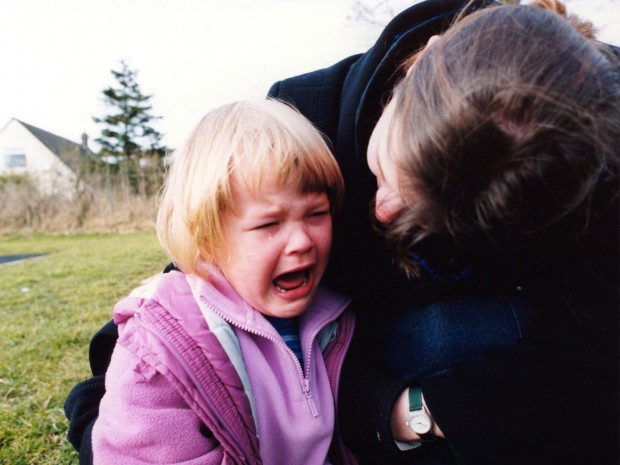Parents can psychologically damage their children

Independent
Bringing a person into the world, teaching them wrong from right, and equipping them with the skills to live a happy life make parenting an extremely challenging and daunting job.
It’s no wonder, then, that mothers and fathers can obsess over the minute details of their parenting skills, while simultaneously trying to care for a child’s basic needs.
A thread on the question and answer website Quora laid bare the fear surrounding this issue, as one user asked: “What is the most psychologically damaging thing you can say to a child?”
Members of the website advised each what not to tell children: drawing from their own experiences and anecdotal evidence.
One woman wrote that her mother was sometimes “like a volcano” when she became angry, and that her verbal attacks started with the words: “Are you listening? Look at me!” She then berated her until she cried.
Another member suggested the opposite: that simply saying “nothing” – by barely communicating or interacting with your child – was what could really damage them.
But can an unkind comment said in a rage, a joke that your child misinterprets, or a formal silence unravel otherwise good parenting?
“It depends on what you mean by damage,” explains Dr Matt Woolgar of the Institute of Psychiatry, Psychology & Neuroscience at King’s College London, who works with families for the South London and Maudsley NHS Foundation Trust.
“You can certainly say things that hurt a child and contribute to their development of self-concept. But you’re not going to say one thing that is going to scar them neurobiologically”.
Instead, Dr Woolgar stresses, it is important for parents to understand that all children are individuals who cope differently with scenarios.
Giving the example of a three-child family, he says: “One or two siblings might be absolutely fine with the throwaway comments parents say, but one might find it quite damaging and it will get below their defences.”
But such responses aren’t necessarily negative, and can enable a child to be more receptive to a parent’s positivity.
“The evidence is that being sensitive can mean a child is also quite responsive to positive things,” he says.
Dr Sam Wass, a developmental psychologist based at the University of East London and Cambridge University, details a similar phenomenon with children described as “dandelions” and “orchids”.
Citing a studies by Dr Megan Gunnar, an expert in child development, he explains that dandelion children are neurobiologically less sensitive and will flourish in supportive or non-supportive households. On the contrary, orchid children thrive when they are in supportive environments, but suffer greatly in unsupportive homes.
But how can a parent tell whether their child is particularly sensitive?
“The key task of parenting is understanding what your child is like and be tuned in to them. You would hope people are sensitive enough to notice the impact they’re having on a child.”
And the affect of a parent’s behaviour may not be immediate, adds Dr Woolgar, recalling how his three-year-old son sometimes repeats comments he made a week earlier.
The added difficulty comes for parents of children of differing ages, as a four-year-old will likely not grasp irony or sarcasm in the same way a 10-year-old can.
“It does make life difficult because you have to always be thinking about how each child will pick up on what you tell them,” says Dr Woolgar.
How to submit an Op-Ed: Libyan Express accepts opinion articles on a wide range of topics. Submissions may be sent to oped@libyanexpress.com. Please include ‘Op-Ed’ in the subject line.
- Libya’s HCS invites applicants for key state roles - December 31, 2023
- UK calls on Iran to prevent escalation in Israel-Hamas conflict - November 05, 2023
- Libyan Interior Minister: Immigrant shelter costs a fortune - November 05, 2023


